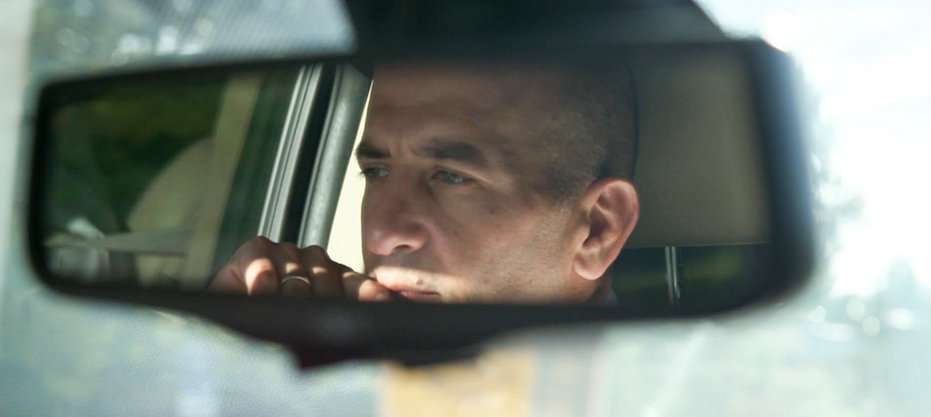HBO's Homegrown Takes a Clear-Eyed Look at Terrorism
U.S. counter-terrorism officials admit that much of what they did after September 11th may have been useless.

In a talk-radio, Facebook-meme world, it's difficult to identify any one public-policy debate that's more intellectually empty and morally debased than all the rest. But the argument over treatment of Muslims in America is certainly a strong candidate. On one side you have the Trumpkins wanting to register them like toxic substances; on the other, the rainbows-and-teddy-bears crowd that acts as if the fact that all 19 of the September 11 hijackers were Muslims is no more significant than if they'd all had the same color socks.
HBO's clear-eyed documentary Homegrown: The Counter-Terror Dilemma, produced in conjunction with CNN national security analyst Peter Bergen's new book, United States of Jihad: Investigating America's Homegrown Terrorists, tries to imbue the discussion with some intelligence and nuance. The most likely reaction, I suspect, will be contemptuous abuse from all quarters, but Homegrown is a perceptive work that's well worth watching.
While exploring both U.S. government excess and blithe Muslim denial, Homegrown never takes its eye off the ball: America's real national security problem is posed not by ISIS' depravity and decapitations in Syria, but by its troubling ability to recruit U.S. born-and-bred Muslims who can fly under the radar here.
"Why is it that, ten years on, more than a decade after 9/11, American citizens are signing up for an Al Qaeda group or an Al Qaeda ideology?" Bergen asks during an on-screen interview in Homegrown.
Deftly mixing jihadist recruitment materials with interviews of American Muslims who've lost friends and relatives to the totalitarian temptation of ISIS and other groups, the documentary concludes that the answer is a misguided romanticism on the part of the recruits that dovetails nicely with cynical deceptions by the recruiters.
"There's something exciting about going overseas and fighting the forces of evil with a rifle," says Omer Mozaffar, the Muslim chaplain at Loyola University's Chicago campus, who admits that as a teenager he seriously considered joining Afghanistan's Taliban, then fighting Soviet occupation. The recruits "thought they'd be in a place where everyone was hugging each other and reciting passages of the Koran." His opinion is bolstered by a chilling shot from a recruitment video showing smiling ISIS members handing out toys and candy to little children. As it ends, a message in English script scrolls across the screen: I WISH YOU WERE HERE.
That explanation, though, is not entirely satisfying. ISIS may be pitching itself to the unwary as an Islamic version of Boys State, but it takes literally seconds on Google to stumble across its less fairy-tale activities.
Certainly Muslim madmen have no ecclesiastical monopoly on the ability to attract groupies—just ask the Manson girls or the superfan who married the Hillside Strangler in prison—but there is something more disquieting about defectors responding not to some warped personal charisma but the ideology of destroying Western civilization.
Homegrown is much more satisfying when it's delving into the collateral damage done by defectors. That includes the families of victims and of the jihadists themselves, and even the members of the national-security posses that hunt them. These last are battered by both sides—considered fascist Captain Ahabs in pursuit of a mythical terrorist white whale by much of the left, but accused of something close to negligent homicide by everybody else when lone-wolf jihadists strike on American soil.
The introspection of the counterterrorists interviewed in Homegrown will surprise many of their detractors. One CIA veteran admits that many of the Patriot Act devices employed by U.S. intelligence and law enforcement agencies in the wake of Sept. 11 were useless: "A lot of what we do, we did because we could, not because it necessarily helped…It's hard to tell if it's worth it."
And then there's Philip Mudd, the famously contentious former deputy director of the FBI's National Security Branch. (Appearing on Stephen Colbert's Comedy Central show to plug his book on terrorism, he called Colbert an unlettered moron.) Mudd confesses to sometimes wondering, as he authorized drone strikes that turned suspected terrorists into random clumps of molecules, "Why didn't you end up being a teacher?"
His interviews are juxtaposed with those of several members of the family of one of the men Mudd helped put in jail, a Georgia-born worker at a domestic-violence shelter named Ehsanul Sadequee. The harshness of Sadequee's treatment—he was snatched off the streets of Bangladesh, where he had gone to get married, then held in solitairy confinement for more than two years while awaiting trial, and much of the evidence against him was withheld until just before the trial began—outraged his family. "We felt betrayed by our government," says one of his sisters bitterly.
Their anger hardened into adamant belief that the whole case against Sadeqee was trumped up, unwavering even in the face of wiretaps and intercepted emails in which he counseled known terrorists on how to avoid catching the FBI's attention, even when the authorities produced video he shot around government buildings in Washington D.C. and emailed to a jihadist cell in Canada. A tourist might take videos of the Pentagon, true—but of the security kiosks?
Where exactly First Amendment-protected speech drifts over the line into criminal conspiracy has always been a troubling legal question, one that's fully covered in Homegrown. Whether the jury that concluded Sadequee crossed that line (he's serving a 17-year sentence) was correct is a fair question. But no reasonable person can read his email and chatroom messages without a sense that something unpleasant was being contemplated. It seems that admitting the obvious should be a pretty low bar. What's sad is that Homegrown's ability to clear it is so unusual.
Homegrown: The Counter-Terror Dilemma, airs Monday, February 8, at 9 p.m. ET on HBO.


Show Comments (15)